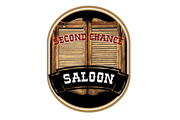A crucial part of completing AA gift to celebrate sobriety Step one revolves around admitting powerlessness. Step 1 of AA requires a great deal of strength and courage as you accept that alcohol has taken over your life. You might not be ready to take the first step at your first AA meeting, and that’s okay.
Understanding Powerlessness
“We admitted we were powerless over alcohol—that our lives had become unmanageable.” You may have noticed your life in chaos—maybe you’ve lost your home, your job, your family, your possessions, or your self-respect. Regardless of how you got to this point, Step 1 of AA is merely realizing that your alcohol abuse disorder was interfering negatively with your life, and you need to change. Powerlessness is a lack of decision-making control over your life. It can arise from dependence on drugs and alcohol or in workplace environments with higher-up employees and lesser subordinates. Similar to this workplace dynamic, the ingredients for a situation where individuals lack power usually occur when there is a large divide between the decision-makers and individuals underneath.
- If you’re struggling with drug or alcohol addiction and are trying to overcome it on your own, give 12 step meetings a chance.
- Spero Recovery Center is a peer-based residential recovery program.
- Today with the understanding of powerless, our number one priority is our relationship with our creator and how we can best serve.
- We might be able to stave off our abuse from time to time, but we start drinking or using drugs again sooner than later.
What are the Benefits of Powerlessness in AA?
If you are living with a loved one’s drinking, it can be difficult to admit you are powerless and unable to keep cleaning up the mess and being the responsible one. You may continue to make things work and, therefore, be part of the sickness. Only after admitting you are powerless can you begin to make changes in yourself. From step one, you can continue to the rest of the 12 steps and 12 traditions. The family can become totally controlled by diseased thinking.
Some Examples of Powerlessness
Until yellow eyes alcohol we can accept powerlessness, we will not fully seek Power. Accepting our powerlessness (complete defeat) is the bottom that an alcoholic and addict must hit. We’ve had good reasons to quit for good, and we continued drinking or using drugs anyway.
The Importance of Good Nutrition in Addiction Recovery
It is a beautiful paradox, that being “powerless” can ultimately empower one to make significant meaningful long-lasting change. This could mean God, a general belief system or the recovery community itself. To admit powerlessness over alcohol (or drugs) means accepting the fact that you’ve lost control over post covid alcohol intolerance your substance use. You accept that your life, either internally, externally or both, has been impacted by maintaining the use of a substance and this addiction has negatively influenced your thoughts and actions. Recognizing your powerlessness over alcohol isn’t a sign of weakness but rather an acknowledgment of the addiction’s strength.
Embracing powerlessness is a transformative process that allows individuals to let go of old patterns, surrender control, and embrace a new way of living in sobriety. Defining powerlessness can be difficult for most of us, mostly because while in the moment, it can be hard to know that you’re not in control. Embracing powerlessness in sobriety also paves the way for developing trust and surrender. When we acknowledge that we are not in control of everything, we learn to trust the process of recovery and surrender our will to a higher power or a greater collective wisdom. This shift in perspective allows us to let go of the need to micromanage every aspect of our lives and instead place our trust in something greater than ourselves. By surrendering, we release the burden of trying to control outcomes and instead focus on taking the necessary steps towards our recovery.
Whatever the reason, admitting powerlessness is to say that practicing self-control does not undo the effects of drugs or alcohol on the brain. Accepting this reality is what will equip you to seek treatment rather than deny that there is a problem in the first place. It is admittedly off-putting to think of yourself as “powerless.” Many people see asking for help to overcome a particular struggle as a sign of personal failure.
Through building resilience and humility, developing trust and surrender, and finding freedom and inner peace, we can cultivate a more fulfilling and transformative recovery experience. One of the most significant benefits of embracing powerlessness in sobriety is finding freedom and inner peace. When we let go of the illusion of control, we free ourselves from the constant struggle to manipulate and manage every aspect of our lives. This liberation allows us to live more authentically, accepting ourselves and our circumstances as they are. By embracing powerlessness, we can focus on the present moment and find peace within ourselves.



Recent Comments